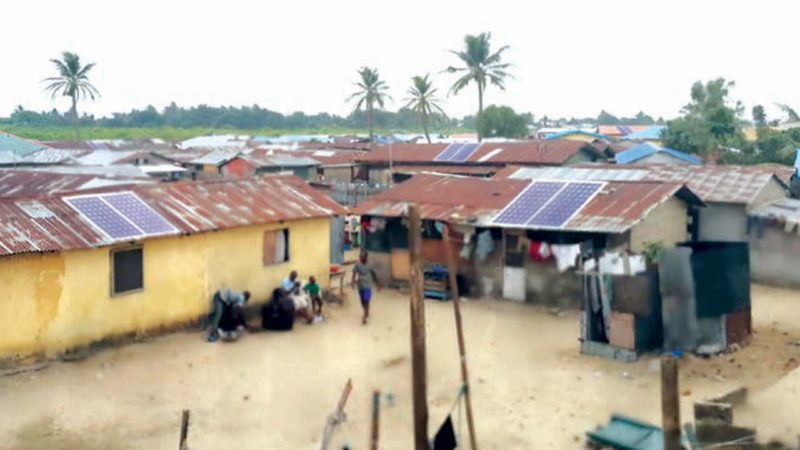The Nigerian government has been told to prioritise national and community energy needs over global economic models that promote inequalities.

This submission formed part of a set of demands made by a gathering of industry stakeholders on Wednesday in Abuja, the federal capital city.
Participants at a daylong Renewable Energy Conference organised by the Environmental Rights Action/Friends of the Earth Nigeria (ERA/FoEN) – and funded by Friends of the Earth Norway – declared that, besides undertaking a reform of the Renewable Energy Policy and proposing a Renewable Energy Policy Bill, government should promote decentralised alternative energy with a focus on renewables which must be affordable and environment-friendly.
The conference – the sixth in the series – also underlined the fact that clean and safe community alternative energy models should be vigorously pursued to deliver on community energy needs that are off-grid and mini-grids.
The participants, which comprised civil society, development groups, government officials and community-based groups, called on government to match words with action by allocating a reasonable per cent of its annual income to funding for research and development of alternative energy sources such as solar, wind and biomass, among others.
Likewise, they urged the authorities to establish appropriate institutional infrastructure and frameworks to support expanding energy supply and access and their sustainability. Sustainable energy policies must be harmonised and integrated in development at all levels, they suggested.
While stressing the need to develop a renewable energy development model backed by an Act of Parliament, as well as zero tariffs on renewable energy products to allow greater energy access, the gathering asked government to divest funding, loans and subsidies from fossil fuel development and oil prospecting and instead invest in renewable sources of energy.
The participants, who shared experiences and analysed critically issues concerning energy policy in the country, the environmental and social impacts of extractive processes, urged the media to deepen understanding of energy issues as well as the struggles against environmental and climate injustices.
The conference brought to the forefront, serious issues on the growing energy deficit and renewed aggressive extraction of natural resources including oil and gas from Nigeria and other parts of Africa to meet increasing demand in North America, Europe and other countries like Russia, Brazil, India and China.
Participants noted that since energy remains critical for development, individuals and civil society groups must amplify calls for a halt to the fossil fuel economy and a change to clean alternatives such as solar, wind and mini-hydro projects.
At the close of the sessions, participants had observed thus:
- Due to ever-increasing energy needs of industries in the developed and emerging economies, Nigeria like many other African countries carry the burden of massive extraction of raw materials and its impact on the environment, health and livelihoods
- The nation’s energy policies are deficient, lack community perspectives, and the political will to follow through implementation of some good policies are lacking. The result of this lacuna is the high tariffs that have largely unleashed poverty on local communities who can hardly afford the cost
- Local communities are hardly visible in the media, and suffer daily untold hardship in the quest for extraction of resources for energy
- There is a dearth of funding from the Nigerian government and donor agencies for research into alternative energy sources that are indigenous to Nigeria. Also, the World Bank and financial institutions continue to invest in energy projects that have adverse effects on energy development in Nigeria
- Oil and solid mineral exploration and exploitation continue to degrade the environment in local communities and the genuine agitation of local communities have only been met with repressive actions by the state and transnational corporations. This, they say, is evident in Nigeria’s Niger Delta region where gas flaring has continued in spite of several deadlines imposed by the Federal Government and a subsisting court order outlawing gas flaring
- Nigeria has largely paid lip service to upping power generation to meet the demand of the teeming population
- Nigeria has become a dumping ground for fake and substandard alternative energy products from the developed world
- Most private investors in energy systems in Nigeria are more interested in profits than actually bridging the nation’s energy deficit
- Funding for research and development is lacking in Nigeria’s drive to energy sovereignty
There is a dearth of information on energy issues in the media thus deepening public ignorance and inhibiting contribution to solutions
